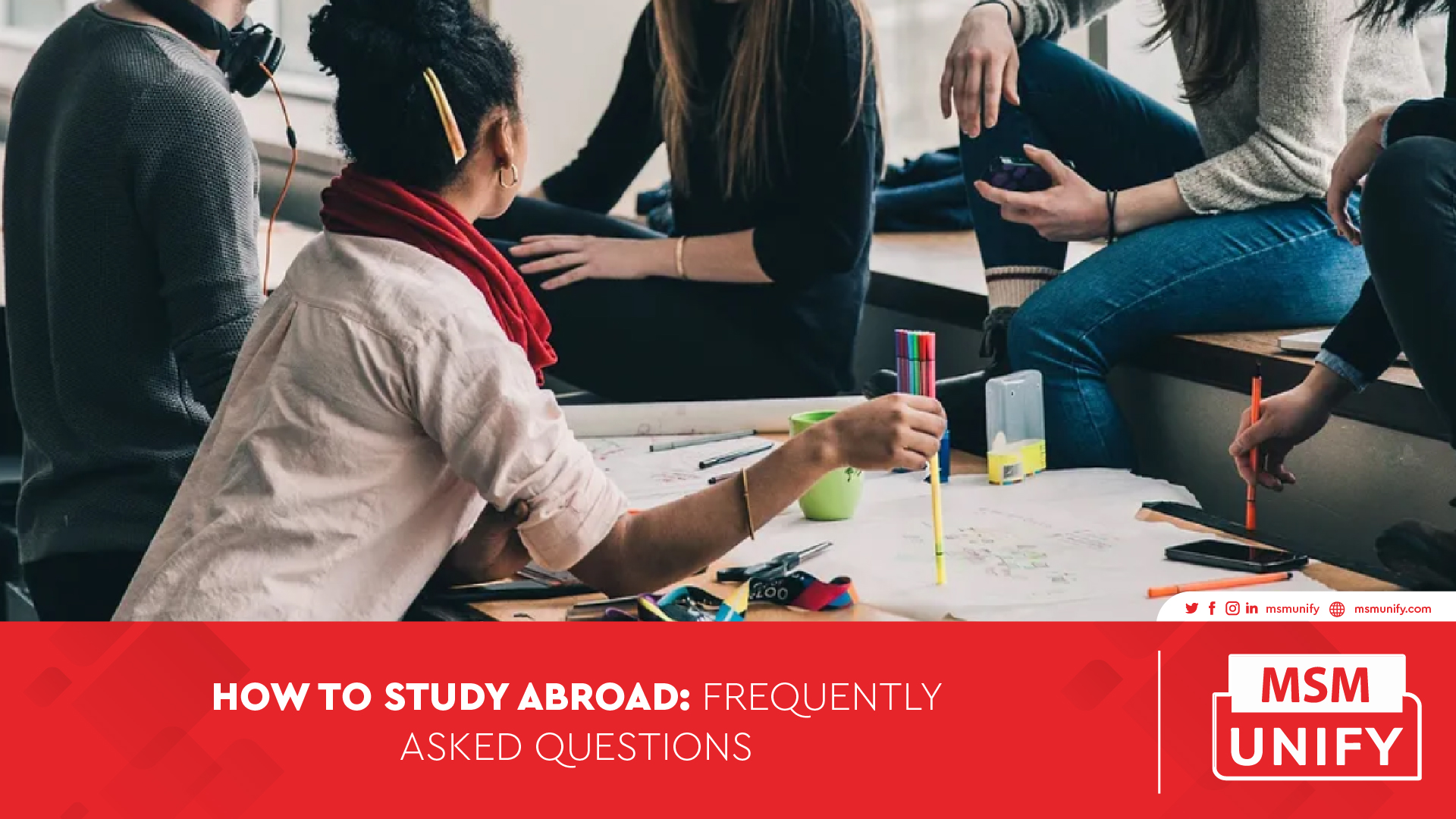It is normal to have many questions about studying abroad–or even have tons of questions to ask study abroad advisors. Studying abroad is a significant decision that requires a lot of research, planning, and preparation. Asking questions helps you gather information and make an informed decision about whether studying abroad is right for you and what program will best meet your needs. It is important to ask questions and get answers to ensure that you have a successful and fulfilling study abroad experience.
In this article, we will be listing study abroad questions and answers that will greatly help you out with your international education.
What are the eligibility requirements for studying abroad?
The eligibility requirements for studying abroad vary depending on the country and institution you choose. Here are some common requirements:
- Educational qualifications: Most countries require a minimum level of education, such as a high school diploma or equivalent, to be eligible for higher education programs.
- Language proficiency: English language proficiency is often required for international students, as most courses are taught in English.
- Financial stability: You may be required to show proof of financial stability, such as bank statements, to cover tuition fees and living expenses.
- Standardized test scores: Some countries require standardized test scores, like the TOEFL, IELTS, or SAT, to assess your language and academic abilities.
- Background check: Some countries require a background check to assess your character and suitability for studying abroad.
- Visa requirements: International students typically need to obtain a student visa to study abroad, which involves meeting specific requirements such as submitting a visa application and supporting documents.
How do I choose the right country and program for me?
Consider your personal and academic goals, budget, and interests when choosing a study abroad destination. Research various programs and compare their academic offerings, costs, and cultural experiences.
How do I finance my studies abroad?
Financing options for studying abroad include the following:
- Scholarships: Many universities and organizations offer scholarships for international students based on merit, financial need, or a combination of both.
- Student loans: You can take out a student loan to finance your studies abroad, although you may need a co-signer if you’re an international student.
- Part-time jobs: Some international students choose to work part-time while studying abroad to help pay for their expenses.
- Education savings: You can save money for your studies abroad in advance, either by setting aside funds or through an education savings account.
- Sponsorship: If you have family or friends who are willing to support your studies abroad, they may be able to sponsor your education.
- Crowdfunding: You can also consider using crowdfunding platforms to raise funds for your studies abroad.
What is the application process like?
The application process typically involves submitting transcripts, essays, recommendation letters, and standardized test scores, and may also include an interview.
How do I obtain a student visa?
The process of obtaining a student visa involves applying to the appropriate government agency in your study abroad destination and providing documentation such as a passport, financial statements, and proof of admission to a program.
What is the typical cost of living in my chosen country?
The cost of living varies by location, but can include expenses for housing, food, transportation, and entertainment. Here are a few factors that can impact the cost of living in your chosen study country:
- Housing: Rent and utilities can be a significant expense, and prices vary depending on the location and quality of housing.
- Food: The cost of food, including groceries and dining out, can vary widely depending on the country and local market.
- Transportation: The cost of public transportation, taxis, or private vehicles can impact your overall cost of living.
- Healthcare: Healthcare costs, including insurance and medical expenses, can vary depending on the country’s healthcare system.
- Leisure activities: The cost of entertainment and leisure activities, such as movies, sports, or travel, can vary depending on the local market and cultural norms.
What is the climate like in the country I’m considering?
The climate of a study destination abroad can vary depending on the location and time of year.
What type of housing is available to me as a student?
Housing options for students studying abroad include dormitories, homestays, apartments, and shared housing.
Will I need to learn a new language to study abroad?
Whether you need to learn a new language to study abroad depends on the country and the language of instruction for your program. Here are a few possibilities:
- English-speaking countries: If you’re studying in an English-speaking country, you may not need to learn a new language. However, it may be helpful to learn some basic phrases and vocabulary to help you navigate daily life.
- Non-English speaking countries: If you’re studying in a non-English speaking country, you may be required to demonstrate proficiency in the local language, such as French, Spanish, or German, in order to be eligible for your program.
- English-taught programs: Some universities in non-English speaking countries offer programs taught in English, in which case you may not need to learn the local language.
How do I handle health and safety while studying abroad?
Ensure you have adequate health insurance coverage, familiarize yourself with local emergency procedures, and research local safety and security conditions.
What kind of support systems are available to students studying abroad?
Support systems for students studying abroad can include academic advisors, on-site program staff, and local student organizations.
Will I be able to work while studying abroad?
Availability of part-time work while studying abroad varies by location and program, and may be limited by visa restrictions.
How will studying abroad impact my future career prospects?
Studying abroad can enhance your resume, improve your cross-cultural communication skills, and provide valuable international experience, all of which can positively impact your future career prospects.
How will I transfer credits from my study abroad program to my home university?
The process of transferring credits from a study abroad program to your home university involves working with your academic advisor and the study abroad program to ensure that credits will be accepted and applied towards your degree.
We hope we have helped you with our guide to studying abroad questions and answers. If you need more tips and tricks on studying abroad, feel free to follow MSM Unify. Browse through our articles to be updated with the latest updates on international education.












